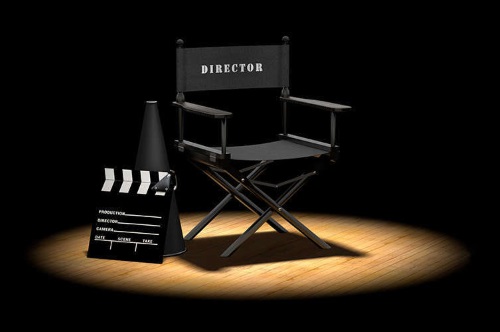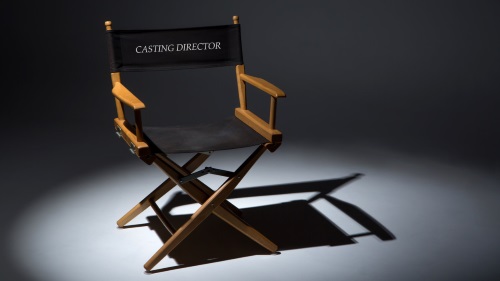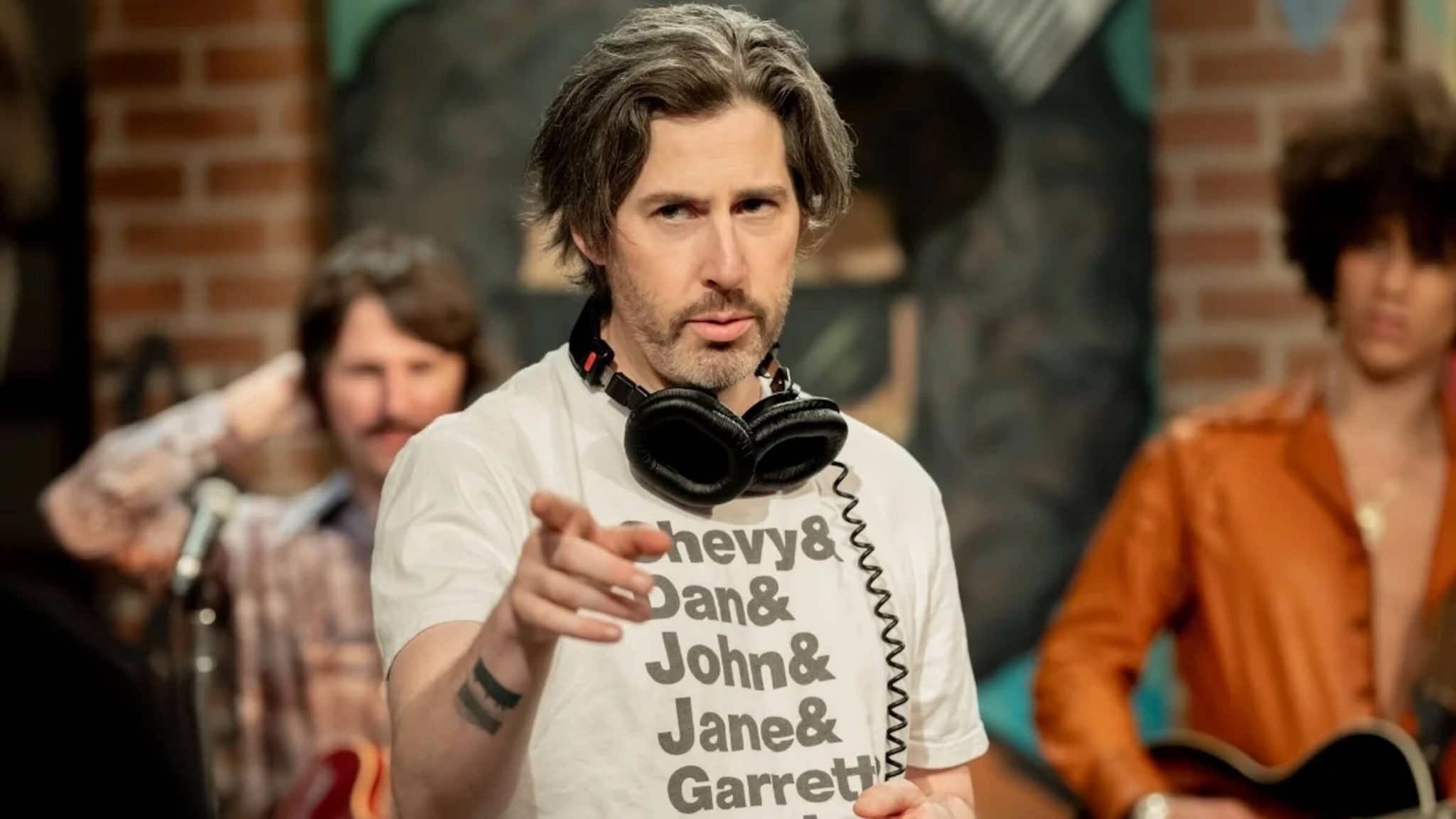What You Are NOT Responsible for as a Screenwriter

You read the endless screenwriting advice telling you what you SHOULD be doing as a screenwriter — but what about the things you are NOT responsible for?
You're supposed to write what you love, keep it simple, embrace the Less Is More mantra, have a compelling opening, have an outstanding ending, inject conflict into every scene, allow your characters to grow, plant and payoff, and offer twists, turns, and reveals to keep the reader invested. Oh, and don't forget to follow the general format guidelines, write many scripts before you take anything out, and keep that page count between 90 to 120 pages.
It's overwhelming, isn't it?
Sure, we do our best to cover the gamut and will continue to do so in hopes that just one or two pieces of screenwriting advice that we offer will help one or hopefully more of you out there.
But let's simplify things a little bit and focus on what you are NOT responsible for as a screenwriter. It's easy to get lost in the details and lose what you think is your place in this hugely collaborative medium.
When you know what you are not responsible for, continual weight is lifted off of your shoulders, and you save hours of work, multiple pages in your page count, and you may even save yourself from some rejection in the long run.
So here are some things you never need to worry about as you write your latest script.
You Are NOT Responsible for Directing

Unless you plan on being an auteur, directing your movie within the script perimeters is not your job. We don't need to read every angle, every cut, every transition, every insert, and every sound effect.
We wouldn't be mentioning this if it didn't happen in a vast majority of screenplays from newcomers out there. It happens — a lot.
You DO want to write a cinematic screenplay. You want your scripts to read as if a movie was being projected onto the reader's inner movie theater as they translate and envision your cinematic story through their own mind's eye.
Read ScreenCraft's Why Screenwriters Should Think Like Film Editors!
However, when you make the mistake of thinking that cinematic writing is about including all of those small details that are clearly director decisions, it actually slows the read of your script and stops being a cinematic read.
Let the director decide those details. If an angle, cut, transition, insert, or sound effect is pivotal to the story — rather than just the overall visual style — then utilize them now and then. Beyond that, it's not your responsibility to direct the film on the page.
You Are NOT Responsible for Production Design
Production designers are in charge of the finer details of each and every set and location. They are the ones that are managing the Art Department and working with the teams responsible for producing other visual elements — costume designers, visual effects producers, set designers, etc. They, and their team have the final say on props, set dressing, color schemes, creature effects, and anything else related to the visual representation of the story and characters on the screen.
They work in conjunction with the director and DP (director of photography) to implement every visual need, down to the last detail.
You as the screenwriter are not responsible for those details. Instead, you are meant to offer only the broad strokes necessary to get the point across as far as what type of setting the characters are in, what could possibly be seen within that setting, what general atmosphere is evident within each scene, etc.
In short, we don't need to know every item in the background, unless it's pivotal to the plot. We don't need to know the color scheme of the room. We don't need to know the types of chairs, plates, appliances, decorations, etc.

We don't need to know every piece of wardrobe the character is wearing. We don't need to know what brand or type of car, computer, smartphone, or other items the character is using. We don't need to know overly detailed descriptions of monsters, aliens, robots, or creatures. Let the professionals in those fields handle all of that for you.
You are NOT Responsible for Fight Choreography
Cinematic fight sequences are memorable when they have the elements of drama, conflict, objectives, and obstacles — all displayed within the script using broad strokes that give the reader what they need the most without slowing the read down to a halt by having to read every punch, every kick, and every technique. Leave that for the fight choreographers.

Read ScreenCraft's Screenwriting Basics: How to Write Cinematic Fight Scenes!
You are NOT Responsible for Casting

While it's sometimes great to offer the development executives and producers a casting archetype for your lead characters, most of the time your personal choices are irrelevant. Save that for the one-on-one meetings you hopefully get. That's when you could be suggesting character types and what actors — or types of actors — you had in mind if they ask you.
In the script, keep things open. Don't pigeonhole your characters by describing them as the "leading man" type, the "blonde knockout" type, an older Tom Hardy, a young Meryl Streep, or anything specific like that.
If your character needs to have a specific look or needs to be of a particular racial background, go for it, but only if it is partial to the story. And never use your own subjective casting recommendations because film is a collaborative medium — you never want to cheat yourself or your script out of a creative out-of-the-box casting choice. Look no further than Robert Downey Jr. as Tony Stark/Iron Man as a perfect example of that. Let the director, producers, and casting director cast your film.
You are NOT Responsible for Being the Next...
We already have a Paul Thomas Anderson, Quentin Tarantino, Billy Wilder, William Goldman, Spike Lee, Aaron Sorkin, David Mamet, Nora Ephron, Diablo Cody, Jordan Peele, and any other number of talented screenwriters with notable movies and careers. Stop trying to be the next example of what already has come before and instead focus on being the first you.
You are NOT Responsible for Who Likes, Loves, or Hates Your Script
When the script is done, and you begin to market it, the fates are in charge of who likes, loves, or hates your script. And make no mistake, if you've honed your writing and follow the general guidelines and expectations of the industry, there will be one person that likes it but has notes, one person that absolutely loves it, and one person that undeniably hates it — all at the same time with the same script.
You ARE responsible for honing your craft, learning from your mistakes, understanding the expectations, and creating new and original concepts (or new and unique takes on familiar concepts). You ARE also responsible for doing your homework and getting your script to those interested in making cinematic stories like yours.
But once the script goes out, it is out of your control. The only thing you can do is make sure that it gets out to as many people as possible to increase your odds of finding that one person at the right time and place, that is willing to give you and your script a shot.
So take that responsibility of who likes, loves, or hates your screenplay off of your shoulders and just keep pushing to get it out there. Listen to the feedback, utilize anything that sticks and discard anything you don't agree with — just as long as you consider it all. And then just let the fates decide the rest.
Read ScreenCraft's Why Won’t Anyone Read My Script!?
Don't try to be the director. Don't dress the sets, pick the locations, or worry about the props. Don't worry about each punch, each kick, or each fighting technique. Don't worry about who will star in your lead or supporting roles. Don't aspire to be the next example of someone that has come before you. And don't stress over who likes, loves, or hates your script.
Just write a compelling, engaging, and cinematic story that will warrant the hiring of those people in those fields to bring your screenplay to life.
Ken Miyamoto has worked in the film industry for nearly two decades, most notably as a studio liaison for Sony Studios and then as a script reader and story analyst for Sony Pictures.
He has many studio meetings under his belt as a produced screenwriter, meeting with the likes of Sony, Dreamworks, Universal, Disney, Warner Brothers, as well as many production and management companies. He has had a previous development deal with Lionsgate, as well as multiple writing assignments, including the produced miniseries Blackout, starring Anne Heche, Sean Patrick Flanery, Billy Zane, James Brolin, Haylie Duff, Brian Bloom, Eric La Salle, and Bruce Boxleitner. Follow Ken on Twitter @KenMovies
For all the latest ScreenCraft news and updates, follow us on Twitter, Instagram and Facebook!
Tags
Get Our Screenwriting Newsletter!
Get weekly writing inspiration delivered to your inbox - including industry news, popular articles, and more!





























